Entertainer, The (1960)
“As Phoebe always says, ‘Better to be a has-been than a never-was.'”
|
Synopsis: |
|
Genres, Themes, Actors, and Directors:
Review: Meanwhile, as soon as we learn more about both Archie Rice (Olivier) and his troubled wife Phoebe (de Banzie), we know we’re in for a rocky ride, given that Archie doesn’t want to face the fact of his financial troubles, and Phoebe is perpetually on her last nerve about it. Making matters worse, Archie is a chronic womanizer who somehow manages to woo a pretty young beauty pageant contestant through an aspirational lie about featuring her in his upcoming (as of yet unfunded) production: … not fully realizing what his affair will do to his wife, whose brother in Canada is willing to help pay their bills and get them started on a new life if only Archie were open to this option. Bosley Crowther describes the overall scenario perfectly, referring to the film (which he nonetheless seems to recommend) as “a devastating picture of a hollow, hypocritical heel and of the pitiful people around him who are drowned in his grubby vanity.” Precisely. Is there anything worse than a once-well-known performer past his prime who refuses to step down from his perch, and drags everyone else along with him on his descent? Well, clearly there are many things worse — but this film makes a good argument on behalf of Archie as a top Pathetic Loser of cinema. Because he’s played by Olivier (giving a marvelous performance), we want very much to seek empathy with him: … but frankly, it’s hard. Archie doesn’t necessarily mean to be cruel, but his own needs are so dominant that he can’t or won’t stop to reflect on what he’s doing to others. To that end, the film is littered with distressing and/or depressing scenes, including a beauty pageant in which several contestants are described matter-of-factly as having “no hobbies” (ouch): … Archie’s employees hovering in the background to eavesdrop while he hears bad news on the telephone (they know this means their own paychecks will be further delayed, but are perhaps experiencing schadenfreude as well): … de Banzie’s multiple hysterical breakdowns: … and the terrible culminating scenes with Livesey (about which I won’t say more at risk of spoiling). With that said, as with other films of the British New Wave, Richardson makes excellent use of authentic locales, very much bringing the seaside world of low-brow entertainment to life: … and Oswald Morris’s cinematography throughout is stellar. Both Alan Bates: … and Albert Finney (appearing only in an early sequence): … made their cinematic debuts in this film, and it’s also notable for bringing together Olivier and Plowright romantically (they went on to marry and have three kids). However, it’s hard to recommend a film that’s such a consistently bleak downer — so consider yourself forewarned. Notable Performances, Qualities, and Moments:
Must See? Links: |
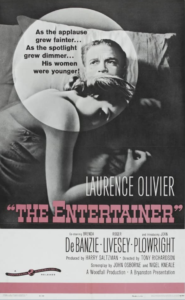
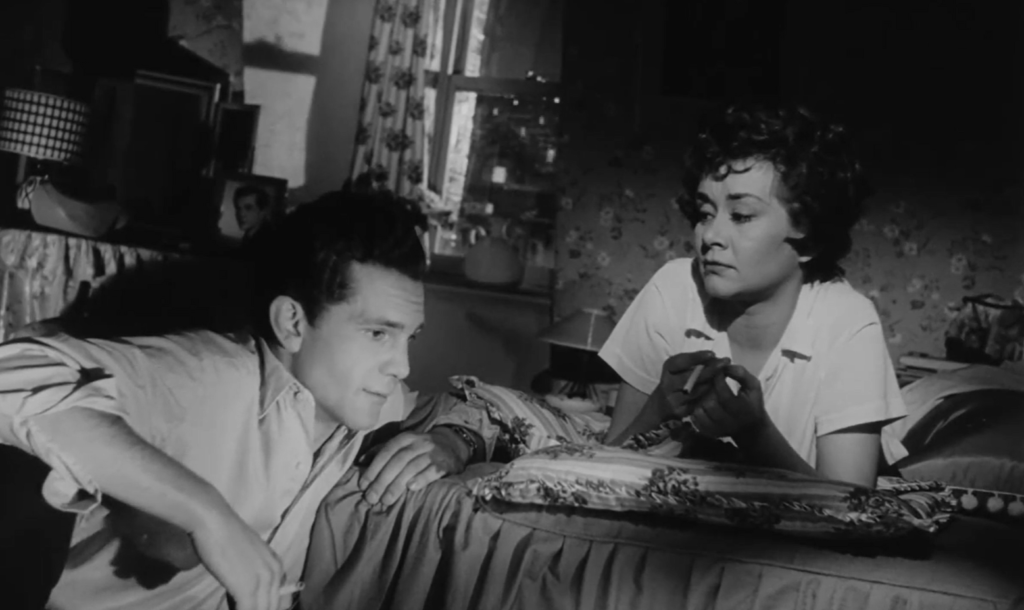
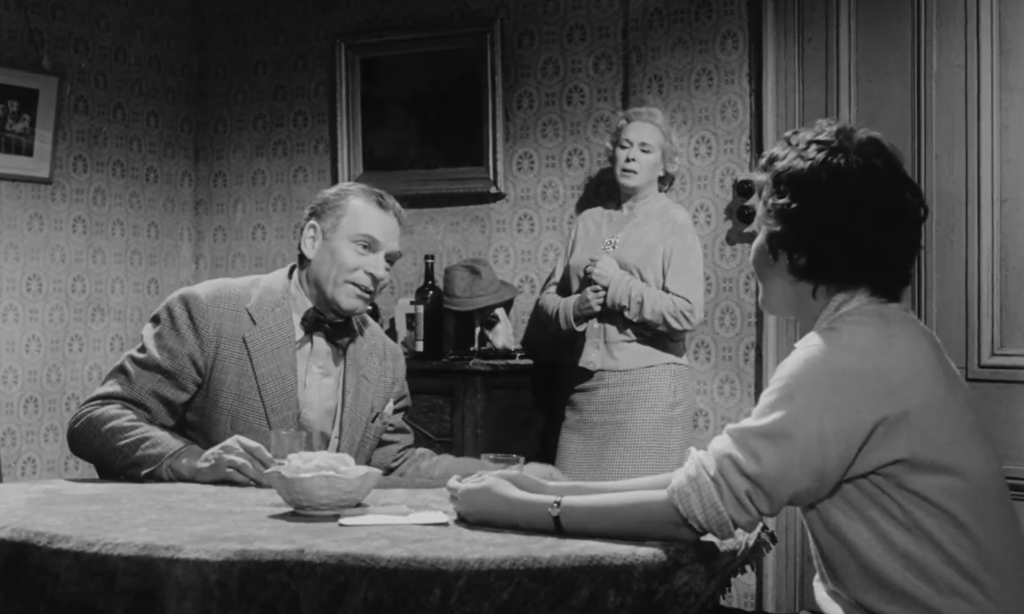
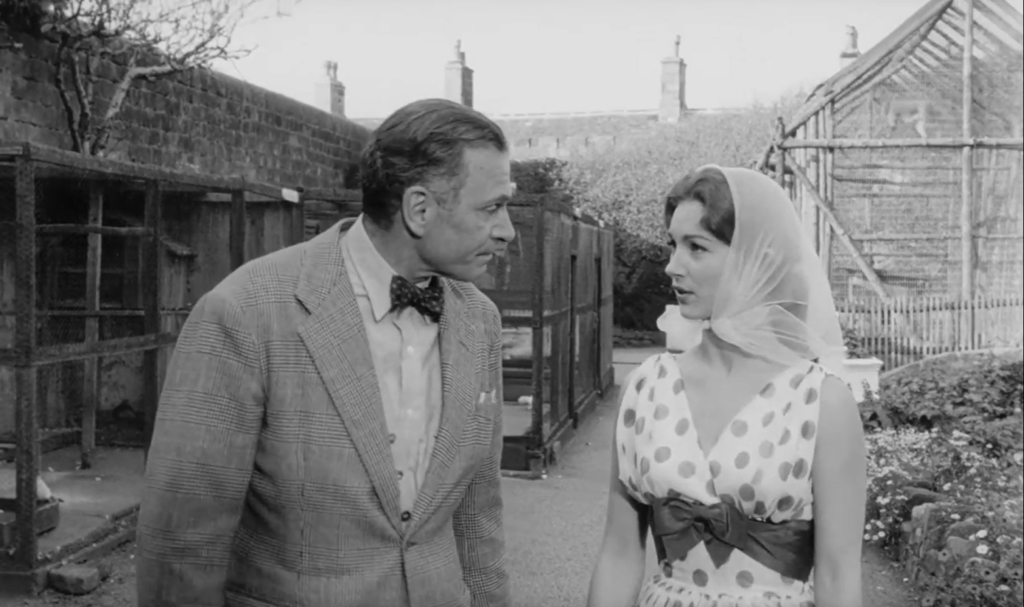
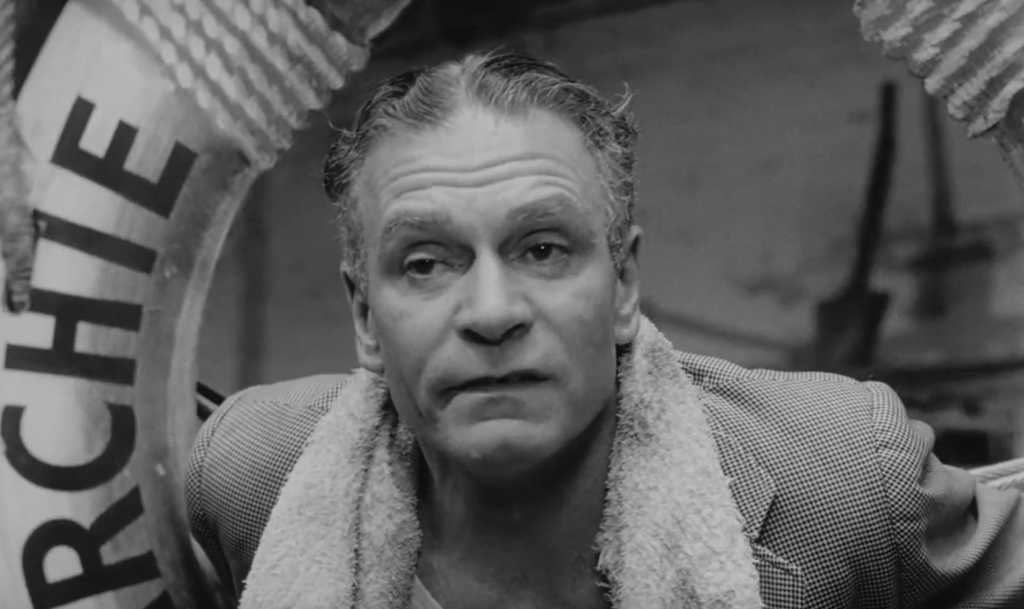
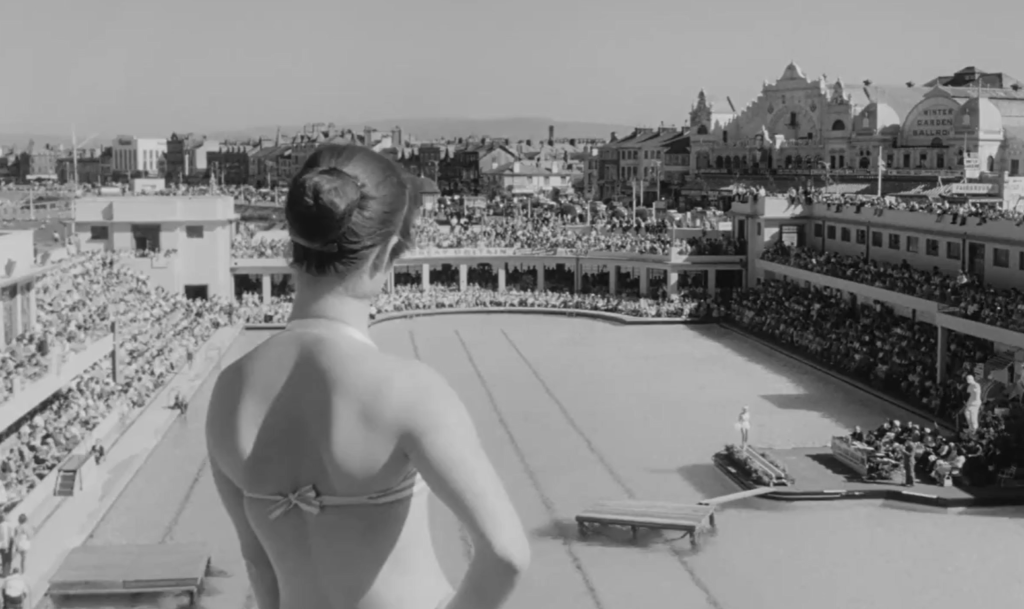
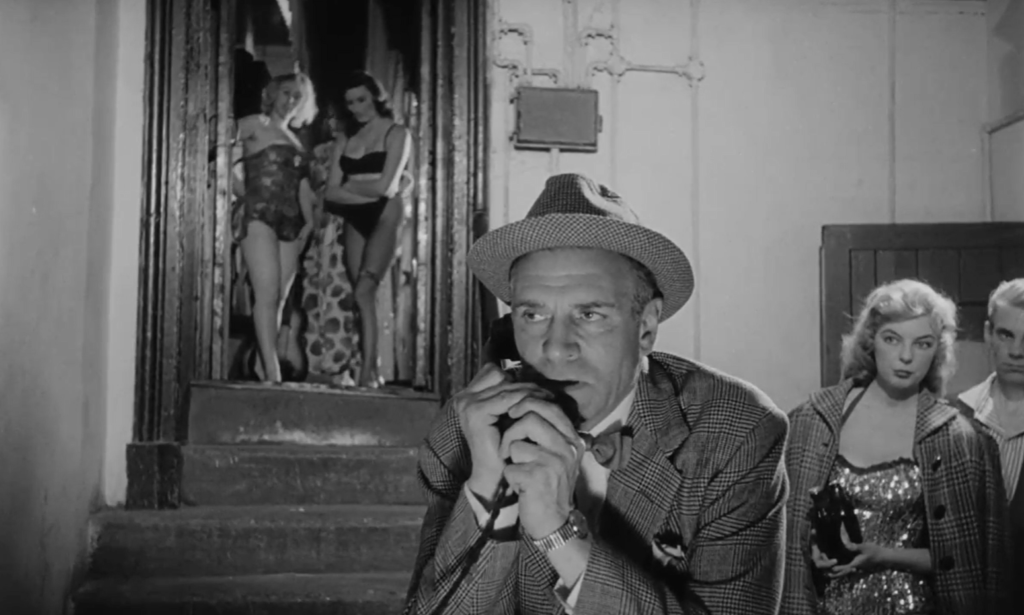
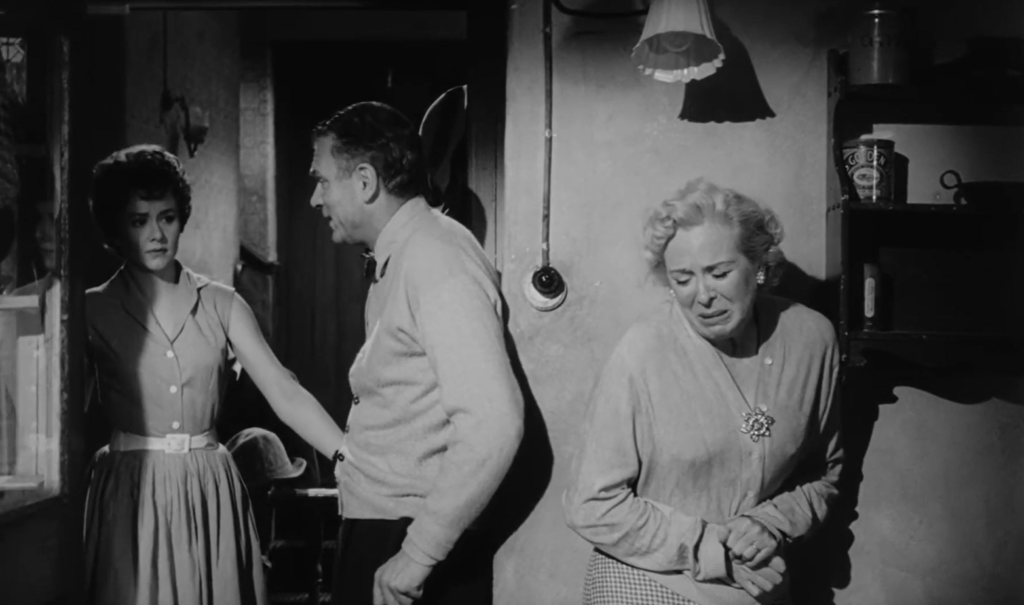
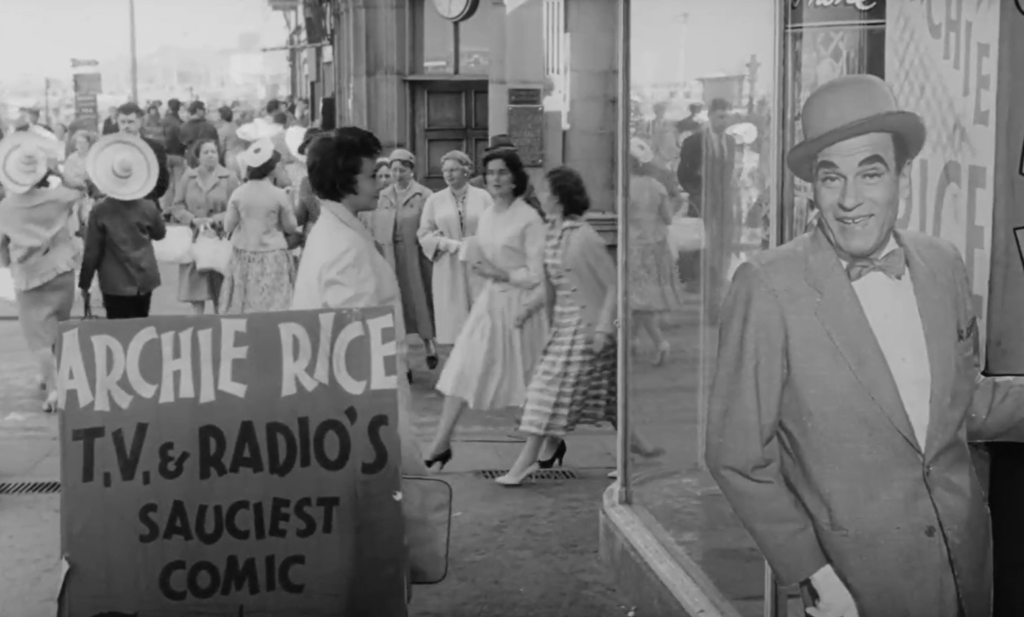
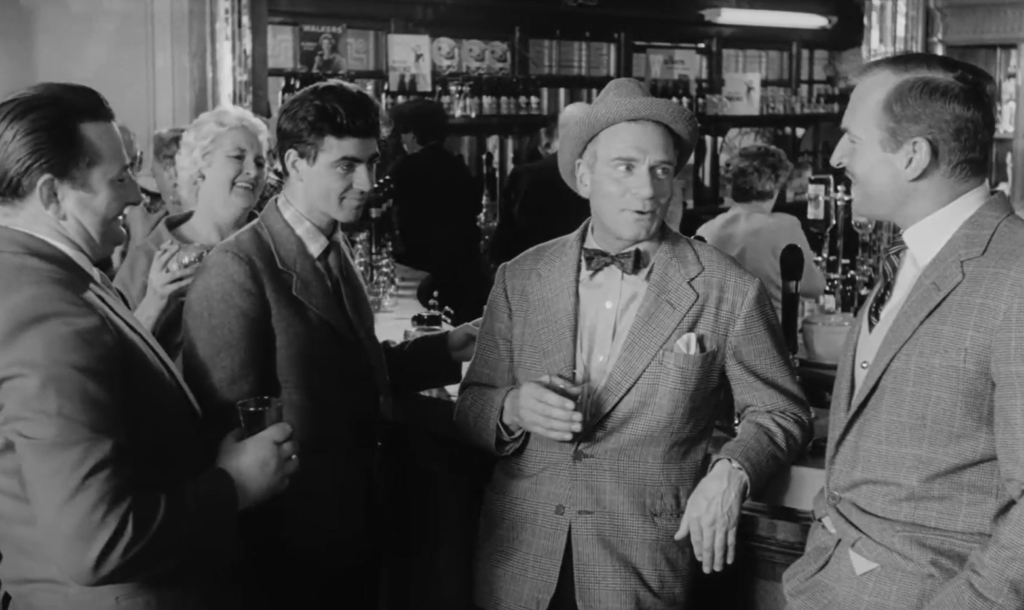
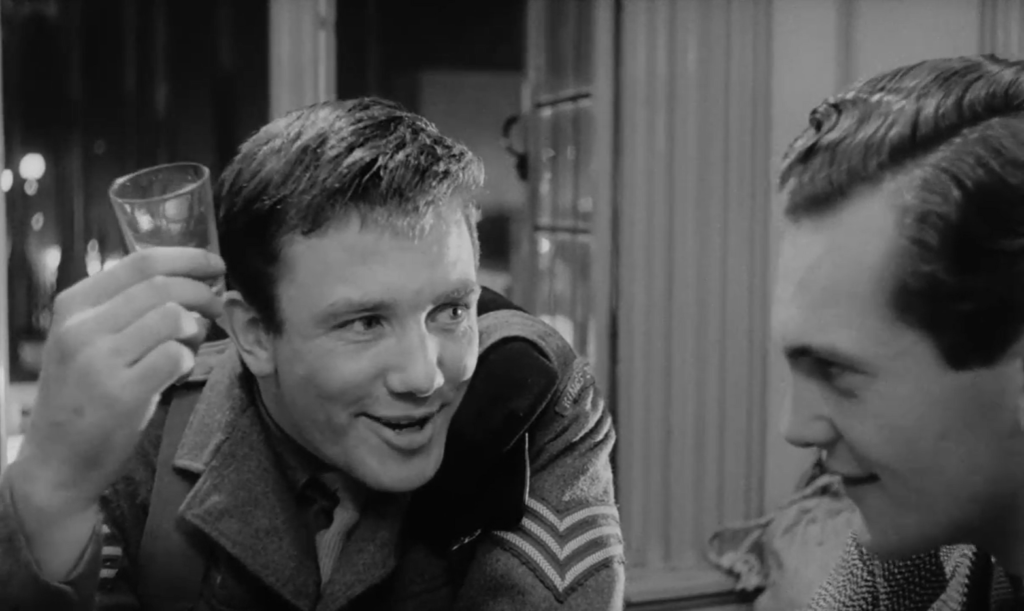
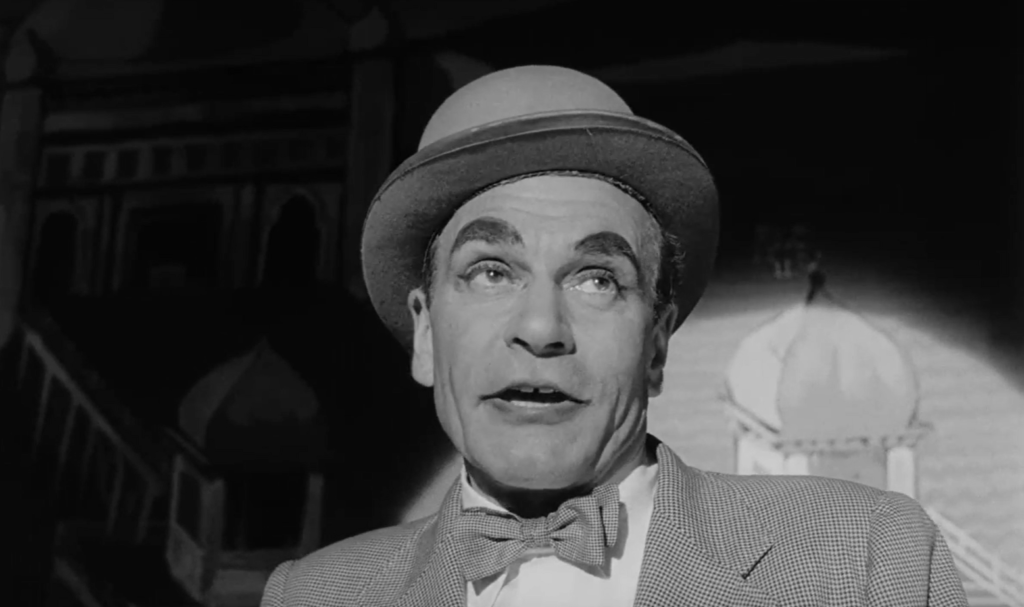
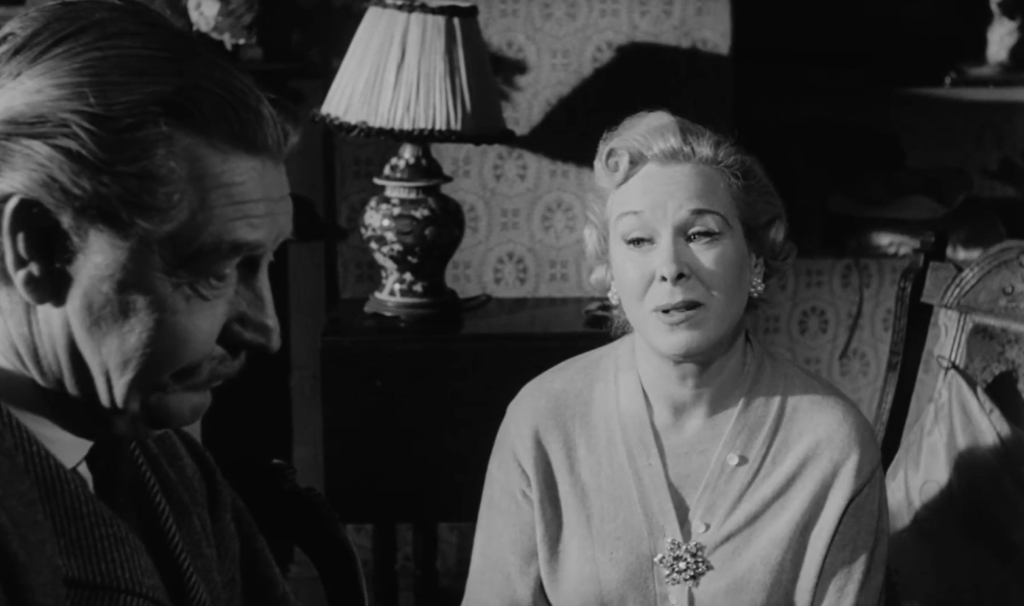
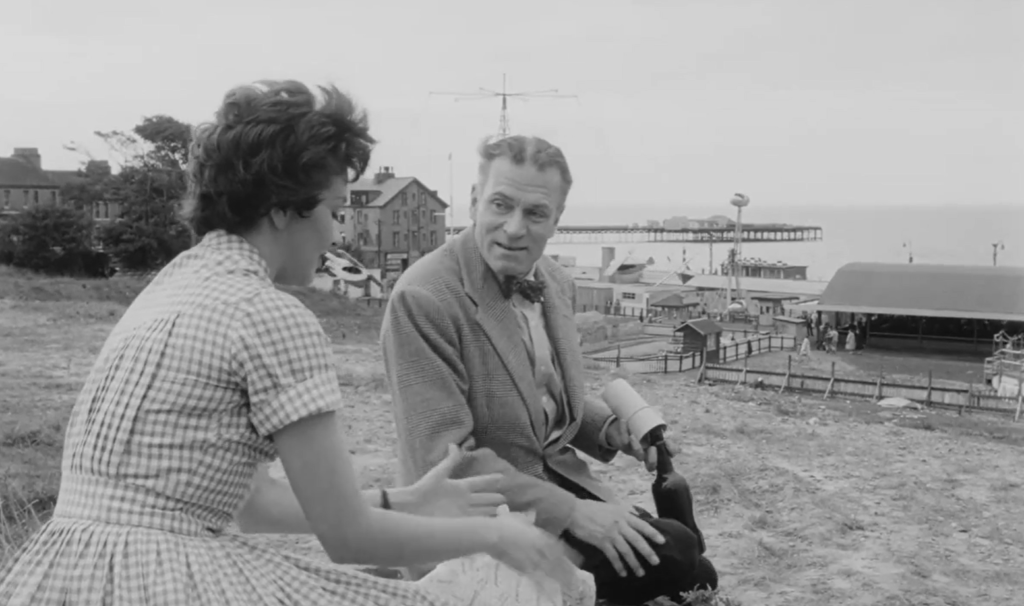
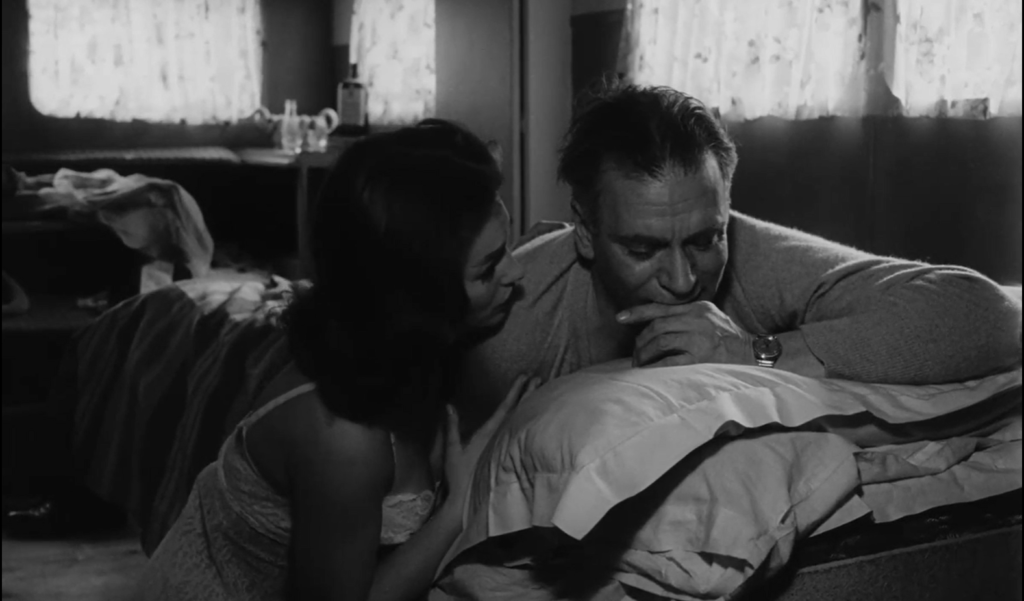
One thought on “Entertainer, The (1960)”
Not must-see.
“… but frankly, it’s hard. ” That sums it up completely. Olivier is pretty much the whole movie here – and who gives a fuck about this annoyingly self-serving a-hole?
A comparison can be drawn between Olivier’s character and Trevor Howard’s in ‘Outcast of the Islands’ – except that the latter film isn’t populated with people who are sucked in and pulled down as a result. Watching Olivier drain everything he touches is simply exhausting – and to what end? Nothing of substance.
Yes, the production is well-made… and a dismal viewing experience.